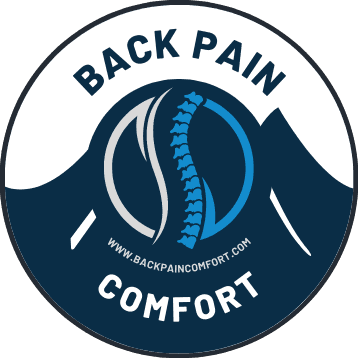
Sleep is fundamental to our health and well-being. However, a restful night’s sleep can be elusive for those suffering from back pain. If you’ve ever woken up feeling more drained than when you went to bed, your mattress might be the culprit. Selecting the right mattress is crucial for alleviating back pain and ensuring a good night’s rest. This guide aims to aid you in making an informed decision to support your spine and offer relief.
Why is Mattress Choice Important for Back Pain?
The backbone of our body, the spine, is a complex structure of vertebrae and discs, which requires proper support during sleep. A mattress that’s either too hard or too soft won’t offer the right balance, leading to muscle strain and poor spinal alignment. The result? Increased back pain. Investing in a mattress that provides optimal support and comfort can significantly decrease or even eliminate back pain.
Factors to Consider While Choosing a Mattress
- Your Sleeping Position: The position in which you sleep can greatly affect your spinal alignment. For instance:
- Side Sleepers: Require a mattress that contours to the shape of the body, allowing the spine to stay aligned. A medium-firm mattress is usually ideal.
- Back Sleepers: Need support for the natural curve of the spine. A medium to firm mattress generally works best.
- Stomach Sleepers: Must avoid arching the spine. A firmer mattress is usually recommended.
- Mattress Firmness: Contrary to popular belief, a super firm mattress isn’t always the best for back pain. Instead, aim for medium-firm support. However, personal preference plays a role; what’s comfortable for one might not be for another.
- Material: Modern mattresses come in various materials:
- Memory Foam: Excellent at contouring to the body and providing support. However, some might find it too hot.
- Latex: Provides a bit more bounce than memory foam and is cooler.
- Innerspring: Traditional mattresses with metal coils. Ensure there’s sufficient padding to avoid pressure points.
- Hybrid: A mix of memory foam or latex with innersprings, offering a balance of support and comfort.
- Thickness: Depending on your body weight and preference, a thicker mattress might provide better support. Typically, mattresses range from 8 to 14 inches in thickness.
- Durability: A high-quality mattress can last up to 10 years, which is essential given it’s an investment. Opt for brands with a good reputation and warranty.
- Budget: Quality mattresses can be pricey, but your health and sleep quality are worth the investment. However, there are many high-quality, budget-friendly options available.

Additional Tips for Relief from Back Pain
Beyond just the mattress, there are other factors that can significantly improve the quality of sleep for those with back pain.
- Pillow Placement: The right pillow can make a world of difference. It’s not just about your head and neck; consider placing a pillow between your knees for side sleepers or under the knees for back sleepers.
- Foundation Matters: A good mattress deserves a good foundation. Whether you’re using a box spring, an adjustable base, or a platform bed, ensure that your mattress has the solid support it needs.
- Mattress Toppers: If a brand-new mattress isn’t within your budget, consider a mattress topper. A quality topper made from memory foam or latex can enhance the comfort of your existing mattress and provide added support for your back.
- Sleep Environment: Your sleeping environment significantly influences the quality of your sleep. Maintain a cool, dark, and quiet room. Consider blackout curtains, white noise machines, or earplugs if necessary.
- Regular Exercise: While this isn’t directly related to your mattress, maintaining a strong core can alleviate back pain.
Trials and Returns
Many modern brands offer sleep trials, allowing you to test the mattress at home for several weeks or months. If you’re unsure about your choice, opt for a brand with a generous trial period and straightforward return policy.
Taking Care of Your Mattress
A good mattress can be a game-changer for back pain, but its longevity and efficacy can be compromised without proper care. Ensure you rotate your mattress every few months to prevent sagging, use a protective cover to guard against spills, and keep it clean.

Conclusion
Choosing the perfect mattress for back pain isn’t a task to take lightly. It’s an investment not just in your sleep, but in your overall health and well-being. A quality mattress can transform your nights, providing relief from back pain and ensuring you wake up refreshed and ready to take on the day. Remember to consider your sleeping position, research materials, and not shy away from using trial periods. Sweet dreams!






